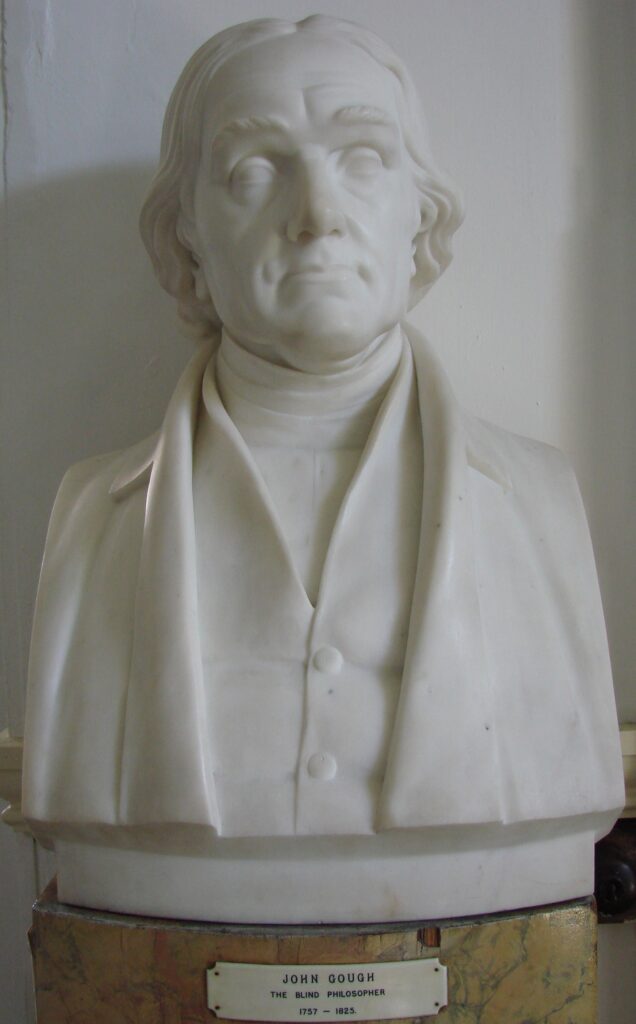
John Gough Bust
In the corridor down to the Wildlife Gallery, Kendal museum has an imposing marble bust of the ‘Blind Philosopher’ of Wordsworth’s epic poem The Excursion. This handsome man was a Kendalian famous for his wide range of scientific interests.
John Gough was born in 1757, the son of a wealthy Quaker family. He lost his sight after contracting small pox as a child and was blind before he was three years old. His father seems to have been quite forward thinking as he encouraged his son to identify many different animals by touch. John became very skilled at identifying not only animals, but also plants using his hands and his lips.
He wrote on mathematics, meteorology and atmospheric physics. Perhaps unsurprisingly he was especially interested in the nature, transmission and reception of sound by the unsighted. He had a lifelong fascination for natural history and has been called a pioneer of experimental entomology.
We are lucky to know so much about him not only from his own writings, but his son, Thomas Gough, who acted as an amanuensis for his father, (and who went on to become an important surgeon in Kendal) wrote down from dictation his father’s autobiography, a list of his father’s publications and composed his own biographical sketch of his father.
John married Mary Harrison of Crosthwaite in 1800 in Kendal Parish Church and they had nine children, one of whom was Thomas, mentioned above. He had a house built on the south west slope of Benson Knott and when conducting his experiments on rainfall, would send his sister up to collect readings from Benson Knott to compare with those at the bottom in Kendal.
His way of learning was to test hypotheses in true scientific mode. He heard the report from a Dr Franklin that live flies had flown out of a bottle of Madeira wine that had been brought to London from the US. He didn’t believe this was possible so set up tests putting beetles, wasps, bees, spiders etc into beer, wine and brandy for different amounts of time. After discovering the insect corpses he concluded that he didn’t believe the Franklin report and concluded that alcohol was ‘highly pernicious to the living principle in insects.’
John himself died in 1825 and he is buried in Kendal Parish Churchyard.
Sources:
‘A note on John Gough: A Pioneer Scientist of Lake and Bog Development’ by Keith E. Barber, Quartenary Newsletter, June 2015
‘John Gough of Kendal, the ‘blind philosopher’ – a pioneer of experimental entomology?’ by Ian D. Hodkinson, Antenna 46 (3), 2022
The Dark Path to Knowledge: The Autobiography of John Gough of Kendal, the blind philosopher and polymath by Michael Pearson and Ian D. Hodkinson, Cumberland and Westmorland Antiquarian and Archaeological Society
‘The Blind Philosopher: the contribution to meteorology of John Gough’ by Chris Wilson, Royal Meteorological Society, 2011

